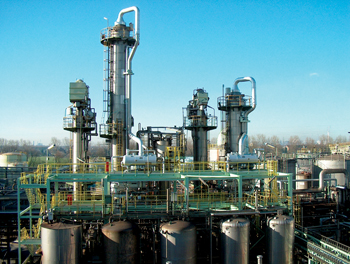
Middle Eastern oil producers Saudi Arabia and the UAE will sharply cut or even halt costly gasoline imports next year after ramping up new refining capacities that put them a step closer to becoming exporters of the motor fuel.
The estimated loss of at least 60,000 barrels per day (bpd) in shipments to Saudi Arabia and the UAE is expected to be mitigated by strong global demand that will help replace revenue lost by sellers such as trader Gunvor, French major Total and India’s Reliance Industries.
And while the dwindling imports may point to a coming change in trade flows as other Middle East refining projects come online, the market currently looks strong enough to withstand the relatively small loss in daily seaborne purchases.
“Most of the counterbalancing will be done by lower exports from surplus countries, either because domestic consumption is growing (such as in India) or because the refining sector or yields are shrinking (such as in OECD markets)”, said David Wech, managing director of consultancy JBC Energy.
Organization for Economic Co-operation and Development (OECD) countries Japan and Australia, for instance, are cutting refining capacities due to shrinking domestic consumption and more cost-effective imports. Gasoline exporter India is likely to reduce overseas sales to cater to growing local use of the fuel.
Total and Gunvor could also sell more into other Middle Eastern countries such as Egypt or nearby Pakistan, where gasoline demand is strong, traders said.
ESAI Energy research agency expects global gasoline demand growth to accelerate by 50,000 bpd to 420,000 bpd this year, the principal reason overall oil demand growth will be higher this year than in 2014, it said in a June note.
“The unusual strength in gasoline had overturned some analysts’ reports in 2014 which said gasoline would be bearish (this year) due to overcapacity,” said a Singapore-based oil products trader. “Overall, gasoline’s crack this year should end at the same levels seen in 2014 if not higher.”
Asian gasoline cracks hit their highest in at least six years on June 11 at about $19 a barrel.










































































